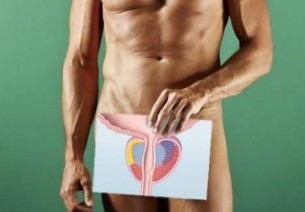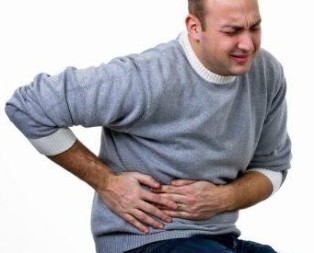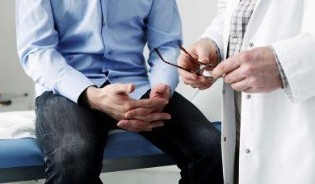The inflammation of the prostate is a serious condition that can lead to serious consequences, if not treated. The prostate is located below the bladder.
When it becomes inflamed, it increases considerably in size, covers the neck of the bladder and to hamper the output of urine. Therefore, when the first symptoms and manifestations, you should immediately consult a specialist to identify and begin treatment of prostatitis.

The main symptoms are: how to represent the prostatitis?
Before it was believed that this disease of the adults and the third age of men, but in the current conditions of life (environment, quality of the food, the fashion, the carelessness of youth to their health, the constant movement in the car, etc) inflammation of the prostate much "younger".
The incidence of young people under the age of 18 years is 5%, in the age group of 18 to 30 years – 45%, from 30 to 50 years, 20% of the more than 50 years – 30%. This tells us that the care of your men's health and pay attention to the symptoms, must young years.
There are several types of prostatitis, the form of manifestation (chronic, acute) and by the shape of the inflammation (bacterial, have been arrested, purulent, infectious, lithiasis). The symptomatology of the disease is very variable, depending on the type of inflammation of the prostate gland in men.
The symptoms of acute prostatitis:
- feeling of discomfort (weakness, chills, fever). The person may begin to release heat in the cold. The common symptoms of the recall of the manifestation of the wrath or the flu;
- the strong increase of the temperature of the body to low-grade brand (37,5-38 degrees) and higher;
- strong cutting, stabbing pain in the perineum (the area of the groin, anus, etc);
- pain in the lower back, hips, irradiated in the feet, the knees, the feet or the leg muscles;
- the sharp pain that appears when the act of defecation and the effort;
- urinary problems (the lack of frequent need to urinate, pain or difficulty urinating). The delay of urine for a long period of time (over 12 hours);
- the deterioration of sexual function (weak or lack of erection, early ejaculation, problems of conception);
- the secretions of the genital organs (in the heavier and execution of cases of prostatitis).
The symptoms of chronic prostatitis:
- problems with urination (difficulty urinating, the pain, the lack of discharge of urine, feeling of incomplete emptying of the bladder, etc);
- unpleasant throwing away the pain and sensation in the crotch, between the legs, in the groin, the anus. Pain syndrome are not very pronounced;
- in the groin, it can sometimes cause a sharp pain or sensation of a strong burning sensation that happens in the crotch area;
- general malaise for a long period of time (drowsiness, apathy, depressed mood, persistent fatigue, muscle weakness, etc);
- the nervousness, the irritability;
- a slight increase in body temperature. Sometimes, during long time you can keep a little bit of fever;
- the decrease of the sexual function (problems with erection, decreased or absent ejaculation, decreased libido, infertility, etc).

Chronic for prostatitis assumes such periods as the remission and relapse. In the period of recurrence of the symptoms of a chronic form can develop into the symptoms of the acute form of the disease.
The symptoms of bacteria of the form:
- the signs of the inflammatory process (fever, fever, fever, general weakness, pain in muscles and bones);
- the local signs of inflammation of the prostate gland (syndrome of pain in the crotch, the groin, the anus);
- problematic urination;
- change the consistency, color and odor of the liquids (urine, the secret of the prostate gland, semen, blood).
The symptoms of the calculous of the form:
- weak and moderate pain syndrome in the low back, sacrum department, the perineum, the anus;
- pulling pain and burning sensation in the crotch, the groin;
- the pain is intensified after intercourse and during active movement;
- problems with urination, feeling of extending the arms of the bladder;
- decreased libido, problems with ejaculation and erection (up to erectile dysfunction);
- in cases in which the semen can appear drops of blood (it becomes light pink in color or bright red).
The symptoms of the failure of the form:
- constant discomfort in the groin area, the perineum and the anus;
- newspapers of pulling pain in the area of the crotch;
- problematic urination, feeling not up to the end of the inanis of the bladder;
- the constant increase of the temperature up to low-grade brand;
- the manifestation of the general inflammatory process in the body (increase of the esr in the blood, malaise, drowsiness, fatigue, headache, weakness, muscle pain, etc);
- the problems in the sexual sphere (weak ejaculation and erection, sterility);
- nervous state, depressive state, apathy.
The symptoms of the infectious form:
- the signs of inflammation in the body (higher value of esr in the blood of men, muscle pain, increased body temperature);
- plaintive laments of pain in the low back, the groin and the crotch;
- the pain with defecation;
- sharp pains in the groin and the crotch;
- problems with urination (difficulty, increased urination, lack of desire, etc).
The symptoms of the purulent form:
- the dramatic sharp increase in body temperature (above 38, 5 degrees);
- the signs of the inflammatory process in the body (high value of esr, muscle aches, fever, chills, etc);
- clearly pain syndrome in the groin, the perineum and the anus;
- sharp pains in the crotch;
- difficulty urinating, pain when urinating;
- purulent of the sexual organs.
What are the first signs of men?
When you start the inflammation of the prostate in man, may occur only a part of the symptoms of the disease. Signs begins the inflammation of the prostate, in which special attention should be paid to:

- discomfort in the crotch area;
- newspapers weak pulling pain in the groin and the crotch;
- pull discomfort in the anus and the bowel with defecation (in the absence of the hemorrhoids);
- a lot of general discomfort, not related to acute respiratory infections, angina, flu, and other diseases of cold;
- decreased libido, the errors of the ejaculation and the erection (newspaper of the lack of it);
- the decline in the quality of orgasm;
- discomfort in the urethra and in the groin area during sex or after sex;
- change the consistency, color and smell of the semen;
- the increase of the temperature of the body.
Expressed by the symptoms of acute prostatitis:
- the increase of the temperature up to 37.5-40 degrees for no apparent reason (not the common cold, flu, no, not angina);
- the frequency of urination increases from 3 to 4 times and is accompanied by severe pain. The urine flows slowly and with little pressure;
- burning sensation in the groin, the crotch, and with defecation. The pain in the gut when the act of defecation;
- allocation of the pus from the gut, or the urethra (the heavy during and purulent form of the disease).
Expressed by the signs of the chronic inflammation of the prostate:
- burning sensation in the groin and crotch. A burning sensation in the genitals (especially during urination and sex);
- purulent from the urethra after urination and when effort (the active movements or defecation). Purulent from the rectum;
- nervousness, depression, irritability;
- fatigue for no apparent reason, drowsiness.
Pain syndrome the inflammation of the prostate gland
Almost always the inflammation of the prostate, the man can learn about the causes of the pain syndrome of his character. Characteristic of pull, plaintive laments or sharp pains appear in the crotch and the groin. The chronic form, or in case of relapse a chronic form of the disease is characterized by pain as sharp, hard, strong, plaintive laments, of cutting and pulling. In the chronic form of the disease pain leading the newspaper, wavy nature. Also pain syndrome may be weak, but steady. A lot of the prostate puts pressure on the urethra, the neck of the bladder and the ureters. It is through these channels the urine out of the bladder, which may appear painful urination. Also painful urination can be a symptom of infections of the bladder or the genitourinary system (sexually transmitted diseases sexually transmitted diseases).
Accompanying the pain may be different from another cause. As well as the presence of several responsible prostatitis pain can be at all an inflammation of the prostate, and a number of other diseases.
Other causes of the companions of the pains:
- the abdominal pain are a symptom of many other diseases. A clear example can serve appendicitis, acute intoxication, infection of the intestines or interfaith.
- Spine can be hurt by the hernia, osteochondrosis, crushing the nerve endings, osteoporosis, multiple sclerosis and other diseases of the spine.
- pain in the rectum can occur due to hemorrhoids, fissures, injuries, long, uncomfortable, solid surface, and different tumors (benign or malignant).
- Pain syndrome of the spine, sacral is most severe. Often it is problems with the bones, the vertebrae and the discs (osteochondrosis, osteoporosis, displacement, crushing, etc).

Sometimes the same pain in the sacrum, it means you have problems with other internal organs (kidney, intestine, bladder, and ureters), gynecological diseases, thrombophlebitis, inflammation of the pelvis minor.
- Sore feet can mean the manifestation of flat feet, thrombophlebitis, atherosclerosis, varicose veins, arthritis, osteoporosis, inflammation of the sciatic nerve, and even diabetes. The pain in the legs may be for different reasons.
The most common is the fatigue of the feet and the muscles of the long physical activity.
What specialist deals with the treatment of a disease?
Diagnose the patient and the inflammation of the prostate can be just a physician urologist. It collects the medical history and performs the review of the sick. Then it goes to the man in the analyses (PSA-protein antigen for the detection of prostatitis) and a pelvic ultrasound.
Also the patient compulsorily distributes general blood and urine. According to the results of all the analyses performed urologist can accurately determine the diagnosis and the form of the inflammation of the prostate. Only after these procedures, the doctor may prescribe a patient a course of treatment, including medications, antibiotics, and other medications that you normally take at home.
The man, in 95% of cases, knows exactly, what diagnosis will the doctor urologist because the pain of the inflammation of the prostate is very specific. It is always necessary to listen to your body, to control all the changes that occur with the body. Just so a man can in the next few years to maintain your men's health. Launched prostatitis threatens not only the disorder of the urination, but the problems with libido, ejaculation, erection, which can ultimately lead to infertility.
























